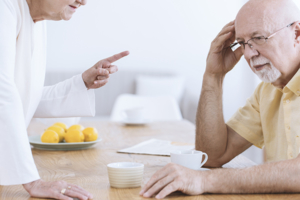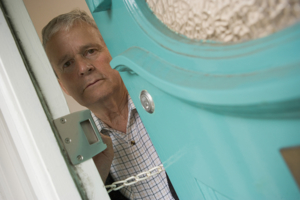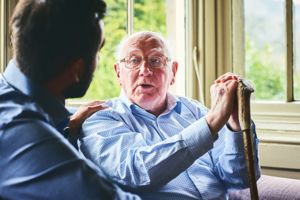Senior Health News: 5 Myths About Aging Debunked

Responsive Home Care is your go-to source when it comes to senior health news.
Feed a cold, starve a fever. An apple a day keeps the doctor away. And for goodness’ sake, never go outside with wet hair or you’ll catch your death of a cold! While some may swear by old wives’ tales like these, it’s important to separate truth from fiction when it comes to senior health news.
Likewise, there are a number of myths accepted as fact related to growing older. The experts in home health care services in Fort Lauderdale, FL at Responsive Home Care wants to help seniors and their families separate fact from fiction to achieve the highest quality of life throughout aging. For instance:
Serious memory loss is not a normal part of aging. Although some mild forgetfulness may be common in older adults, severe memory loss, especially related to recent occurrences, may be indicative of Alzheimer’s disease or another type of dementia.
Falls are preventable. Falling should never be accepted as an inevitable part of aging. Senior falls can cause serious harm to older adults, and steps should be taken to prevent them, such as ensuring the senior maintains a routine of balance and strengthening exercises, receives vision checks, and has the home evaluated and modified to reduce fall risk. (Responsive Home Care can help with this!)
Nursing homes are not inevitable. In fact, the vast majority of seniors, given the choice, would prefer to remain at home throughout aging, and with the assistance of a professional home care agency, like Responsive Home Care, this is a viable option for many.
Engage hospice services early. While the tendency may be to consider hospice as a last resort, put off until the very end of life, it’s most beneficial to bring in hospice services as soon as possible. Research shows that individuals receiving hospice care experience a better quality of life, are more comfortable, and even live longer than those who do not.
For more resources on senior health news and aging, contact Responsive Home Care. It’s our goal to ensure that families are equipped with as much education and support as possible to help their senior loved ones. Call us any time at 954-486-6440 for an expert home health aide in Fort Lauderdale, FL or the surrounding areas. To learn more about all of the areas that we serve in Florida, please visit our Service Area page.








